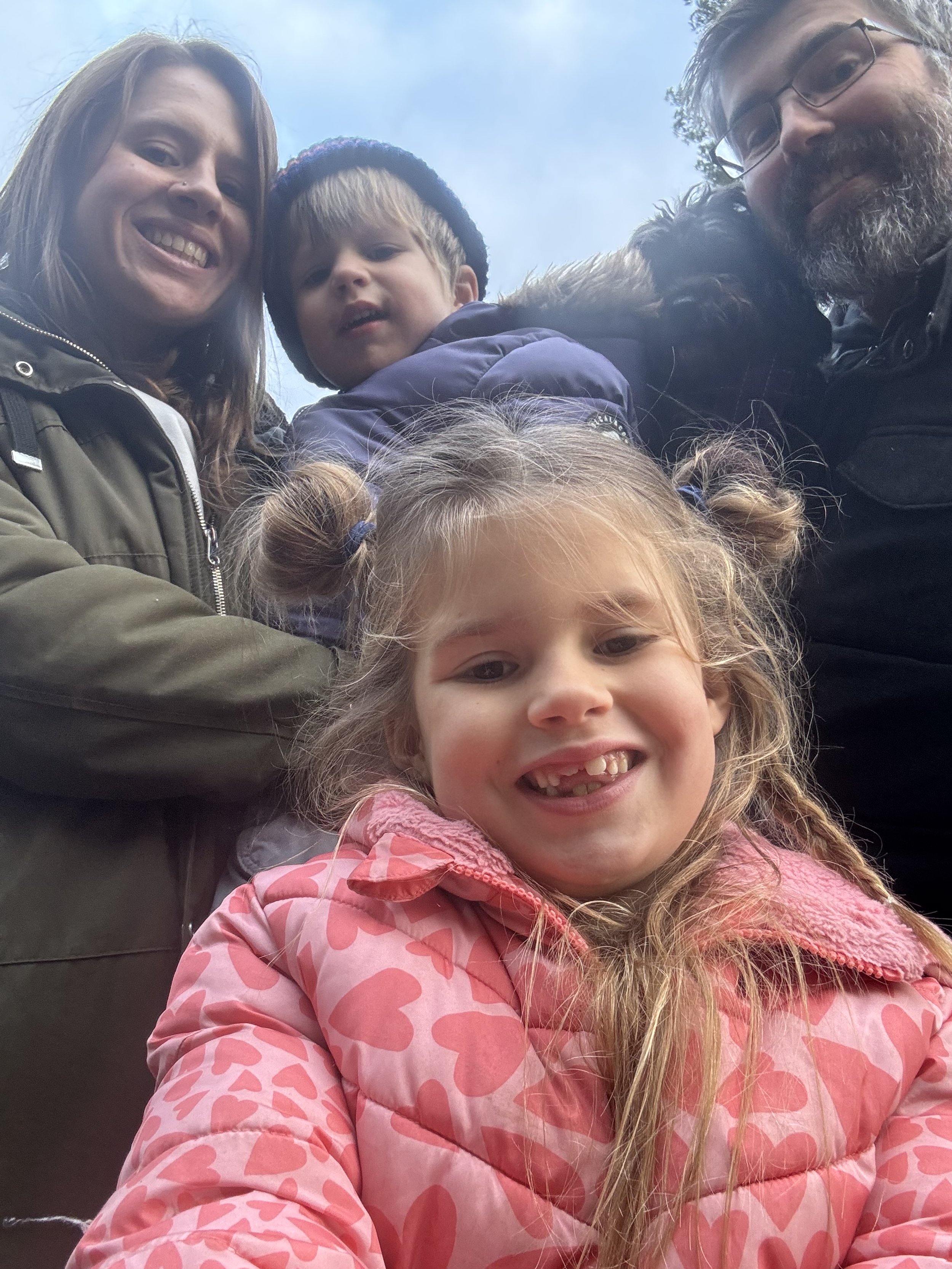In conversation with Zeb Chadfield
1.Introduce yourself
I’m Zeb Chadfield, and I’m a Kiwi living in London with two lovely kids: Ellie, who is nearly 7, and Titus, who is 3. We also have a dog, Lily, two chickens (Aurora and Marmite), and too many fish. We started with tiny fish, added another couple, and then there were babies… and now Tiny Fish isn’t the tiny one anymore!
2. What is your job title?
I’m the founder and CVO (Chief Visionary Officer) of the post-production company The Finish Line. Rather than being the chief of executives—which sounds very boring—I thought I’d rather focus on something more interesting: the vision for the company, what we should be now, and what we want to be heading into the future.
3. Who looks after the kids when you are working?
Primarily my wife during the week, although I always try to do the school drop-offs. I also take a little time out on Tuesday afternoons to take my daughter to martial arts. I’ve always done the mornings, so regardless of what time the kids are up, I’m with them, letting Nat sleep in and brace herself for the day.
4. How long did you take off work after having your children?
For my first, I was figuring things out and was advised by my business partner that newborns don’t do much in the first few weeks, so I should focus on work and take time off later when she was more active. That was terrible advice. I was very much needed in those early weeks, and I was overloaded with work, so it wasn’t ideal. With my second, I decided to take six weeks off, and now we encourage at least that for paternity leave.
5.Would you say that you have a good work/life balance?
Yes, though there are peaks and troughs, I’d say it’s generally balanced. I’m fortunate to have set up a company with the main goal of being family-friendly. We’re always tweaking and adjusting things to be a great place to work, especially for parents. We’ve won Gold in Broadcast’s Best Places to Work in TV twice in a row, so I’m confident we’re doing something right.
6. Are you job-sharing or working flexibly?
I work flexibly myself. As a company, we enable flexibility in roles, and job sharing is entirely possible for many positions. We have contracted hours, but we’re happy for employees to adapt their schedules to suit their family needs where possible. Some roles require in-person work at specific times, depending on client needs, but we incentivise remote work by charging lower rates, making it more appealing for productions. This helps us enable flexibility for our team while ensuring the work remains measurable and within budget.
7. What do you think is the hardest part of being a working/industry parent?
Most businesses haven’t been built to prioritise what should matter most: supporting families. Plummeting birth rates highlight this issue. If it’s hard to make ends meet on your own, how can you raise a family and give them the time and energy they deserve? Industries need to make sure people have clear expectations around working hours, but also allow adjustments to suit family needs. Work devices should be provided so personal lives remain personal. We need to switch off to bring our best selves to both work and family.
8. What are your tips for other industry fathers wanting to have kids while keeping a career in film?
Set boundaries early—even before you have a family. If you don’t have the discipline to go on dates, hang out with friends, or spend time with family now, you won’t suddenly develop it later. You might write it off to focus on your career, but you don’t get that time back. Good habits are hard to build, but they’re crucial: fitness, healthy eating, and quality time with loved ones or your community all matter. Start now and keep nurturing your relationships—it’s great practice for when you have a family of your own.
9. Any advice for anyone about to return to work after having kids?
Don’t stop putting in the effort. The relationship you want with your kids and partner takes consistent work, so figure out what you can do rather than focusing on what you can’t. Push for what’s right in your workplace—not just for yourself, but for others who may not feel empowered to speak up. Change takes time and effort, but being part of that change is better than accepting the status quo.
10. What advice do you wish someone had given you?
I’m not sure—I don’t know what I don’t know! I guess I thought living far from family would get easier as I got older, but the opposite is true. I really wish I had my family around to help raise my kids and be more involved in each others lives. I didn’t fully understand the sacrifice I was making until I had children. Now I just wish my family and friends, who are spread across the globe, could share in this experience with me. That said, I’m proud to be part of an industry shift towards distributed work. Hopefully, this flexibility will benefit future generations in every way possible.

